Quote:
Originally Posted by freebeard

What's your theory as to why?
The before picture is small. The diffuser appears to have a steep angle and no fences.
|
With pre-Hucho info,all I had to go by was Morelli's steeply upswept belly and aspirated rear bumper and I also noticed what Ford had done.
Ford had achieved Cd 0.137 with the Probe-V,and I took a leap of faith that maybe what they'd done on the Mustang was okay,dragwise.The trip was all about learning,and a success as far as that goes.
I couldn't find my fabrication photos so I chose this,as it was all I could come up with.
There are no strakes as they weren't invented yet except for the GM Solaraycer,which was for yaw control.I'm not sure why they put them on contemporary racing diffusers unless they believe that some sort of cross-talk is eliminated.
The sides of the tail were steep as well,and by cardboard/taping up the hole and paneling the bottom and sides I ended up with the lowest drag diffuser,which showed at top speed,and later mpg on the rest of the trip.
If you look at this photo from the Chrysler Proving Grounds,you can just barely make out how the sides and diffuser area were lowered.
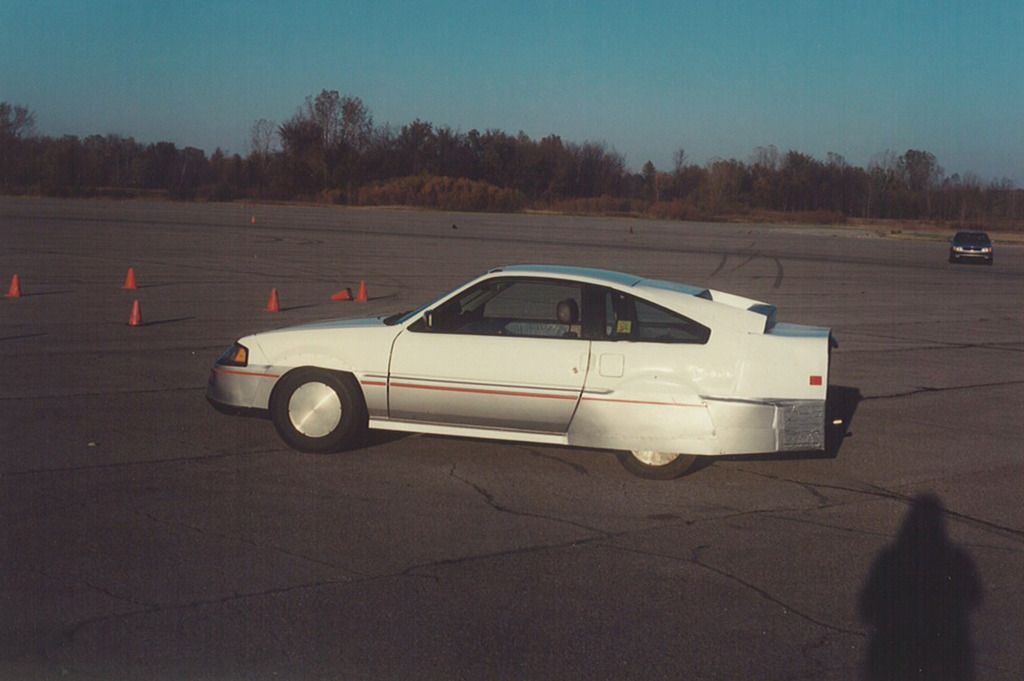
I finished the flying buttresses on the road to Georgia.
Modern 'fast' diffusers are only for high speed directional stability.Ferrari and Bugatti have the capability to 'slow down' their diffusers with active valving,when downforce interferes with straight line velocity.
For mpg,the 2.5-degree,to 4-degree upsweep (depending on diffuser initiation point) delivers the best performance.
Here's the results from coastdowns
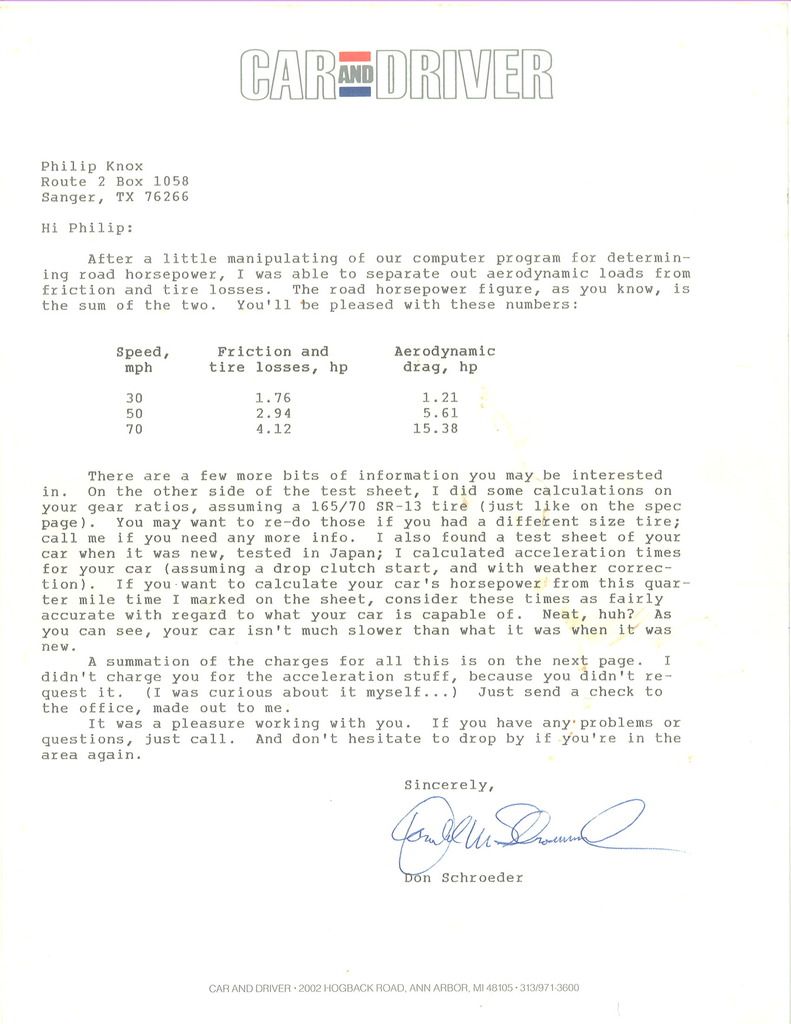
You can compare the 50-mph road horsepower to the original values
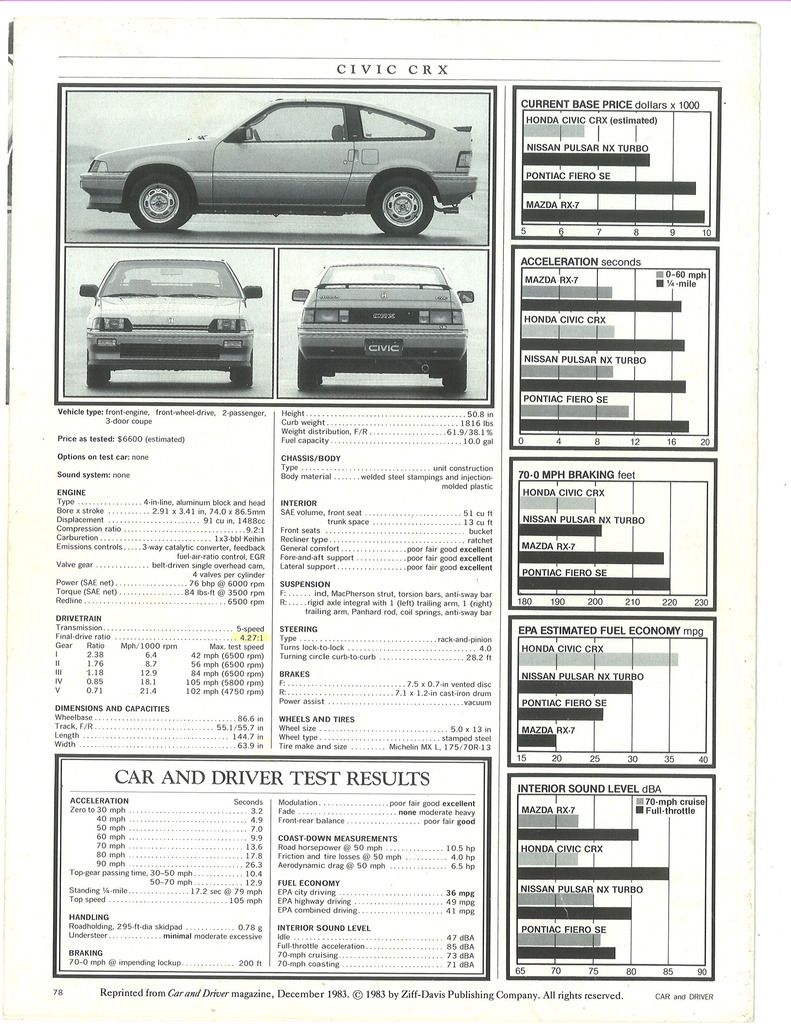
She went 98-mph in 49-degree air at Chrysler.100 mph in the Texas/New Mexico area.93-mph was the original top speed at Tochigi,Japan on a 80-degree day.
PS The coastdowns were performed with the optical 5th-wheel attached to the side of the car
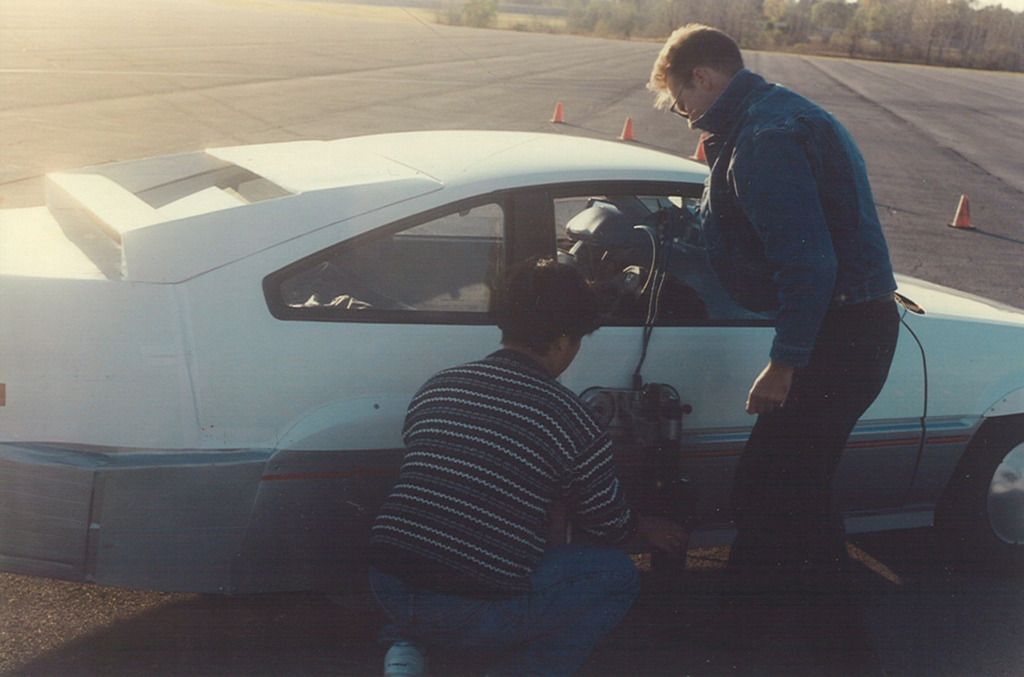
This photo shows better how the sensor adulterates the side of the car.
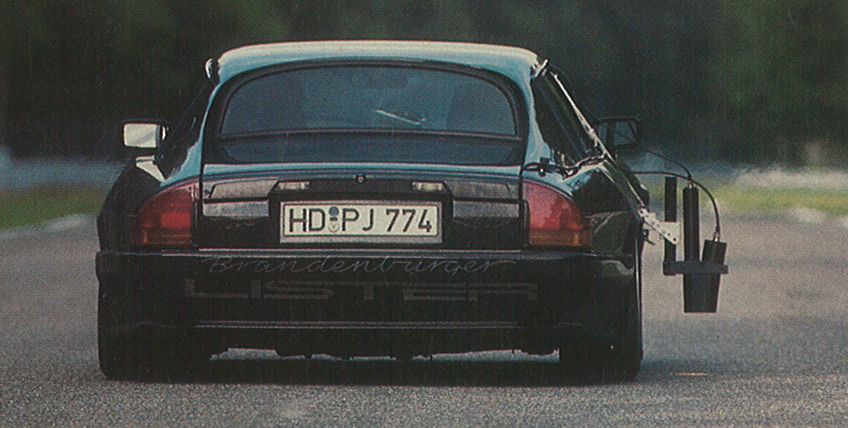
All the road hp values would be adjusted down if it were taken into account.
In telephone conversation with Glen Scharpf,GM aerodynamics engineer,the CRX was estimated at Cd 0.235 vs 0.32.